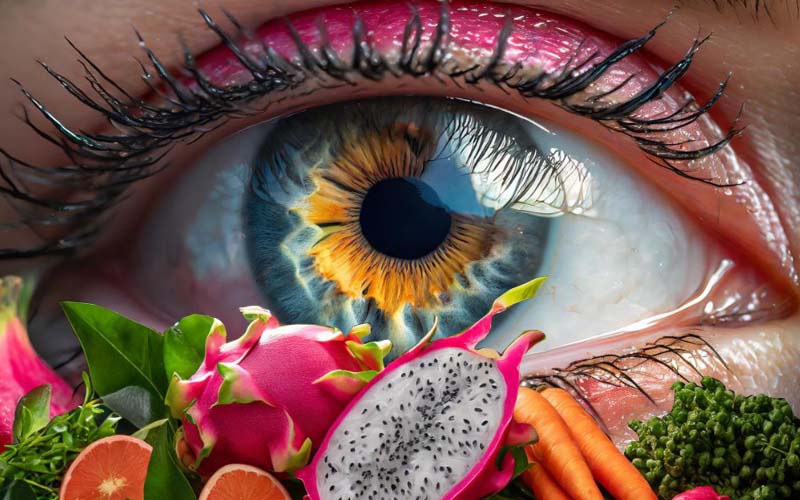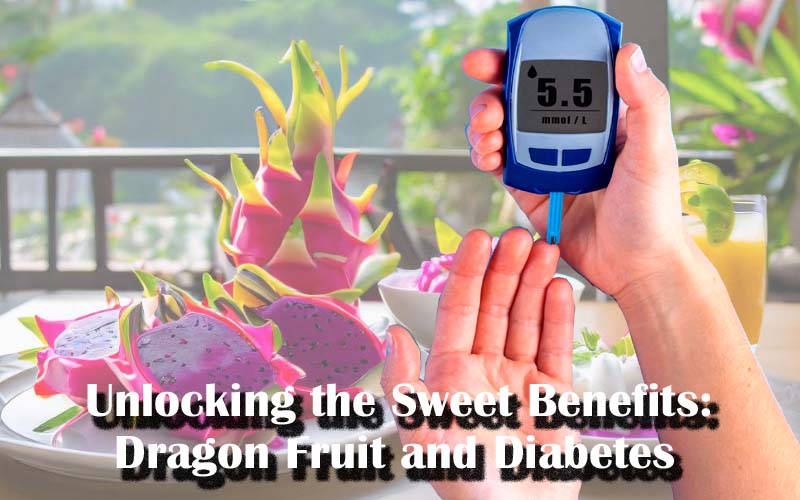Introduction:
Dragon fruit, with its vibrant colors and unique appearance, has long been celebrated for its sweet taste and potential health benefits. Beyond its visual appeal and delicious flavor, there is growing interest in exploring the effects of dragon fruit on the intricate balance of sex hormones in the human body.
This exotic fruit, also known as pitaya or pitahaya, is rich in various nutrients, prompting curiosity about whether it may play a role in influencing sex hormones. In this discussion, we’ll delve into the potential impact of dragon fruit on sex hormones, examining the existing knowledge and the implications it may hold for individuals seeking to enhance their well-being.
Contents

Friends, this blog is going to be completed in three parts. In part one, I am going to explain sex hormones. In part two I am going to discuss the nutrients, vitamins, and minerals that help in boosting sex hormones. In part three I am going to find out if these nutrients, vitamins, and minerals are present in dragon fruit, if present, then how effective they are?
Before establishing a relationship between dragon fruit and sex hormones first let me clarify the basics of sex hormones. Sex hormones, also known as sex steroids, are chemicals made by our bodies that play a big part in how we grow, reproduce, and stay healthy. They’re mainly made in the gonads, which are the body parts that help with making babies (like testes in guys and ovaries in girls). But, our adrenal glands also make a bit of these hormones.
There are three main kinds of sex hormones:
Androgens:
Often called “male sex hormones,” these help guys develop male traits like facial hair, muscles, and a deep voice. Testosterone is the most important androgen for male sexual health. But, girls also make a bit of androgens which helps with their bone health and desire for intimacy.
Estrogens:
Often called “female sex hormones,” these are responsible for female traits like breast growth, periods, and regulating the menstrual cycle. Estradiol is the most important estrogen. But, guys also make a bit of estrogens which helps with bone health and sperm production.
Progestogens:
These hormones are crucial for preparing the uterus for pregnancy and keeping the menstrual cycle going. Progesterone is the most important progestogen. Both guys and girls make progesterone, but in different amounts and for different reasons.
Besides their role in growing up and making babies, sex hormones also affect our bodies in other ways:
- Bone Health: Sex hormones are important for keeping our bones healthy. Estrogens and progestogens help prevent bone loss in girls, while testosterone helps guys build strong bones.
- Muscles: Testosterone helps muscles grow and get strong.
- Metabolism: Sex hormones can change how our bodies burn calories and store fat.
- Mood: Sex hormones can affect how we feel emotionally.
- Thinking: Sex hormones might also play a part in how we think and remember things.
Our sex hormone levels change as we grow up. During puberty, they go up a lot, causing changes like facial hair or breast development. In girls, hormone levels change during the menstrual cycle and go down a lot during menopause. In guys, hormone levels slowly go down as they get older.
Unleashing the Power of Nutrients, Vitamins, and Minerals for Vibrant Sex Hormone Health!
It’s crucial to know that nutrients, vitamins, and minerals can help support healthy hormone levels, but they aren’t magic solutions for significantly boosting sex hormones. Just adding specific nutrients won’t guarantee a big increase in hormone levels for generally healthy individuals.

However, including certain nutrients in your diet can create a foundation for good hormone health and might address any deficiencies affecting your sex hormones. Here are some important nutrients and their potential roles in hormone health:
For Testosterone (Men and Women):
- Zinc: Plays a vital role in making testosterone and sperm. Not having enough zinc can lower testosterone levels.
- Vitamin D: Is involved in producing and regulating testosterone. A lack of vitamin D can be linked to lower testosterone levels.
- Magnesium: Supports testosterone production and muscle function. Low magnesium levels can disrupt testosterone production.
- Fatty acids: Certain fats like monounsaturated and omega-3 may support healthy testosterone levels and sperm quality.
For Estrogen and Progesterone (Women):
- Vitamin B6: Is involved in processing estrogen and progesterone. Not having enough can disrupt the menstrual cycle and hormone balance.
- Vitamin E: Might have antioxidant effects supporting ovarian function and hormone balance.
- Vitamin C: Plays a role in making and regulating hormones. A shortage can impact menstrual cycle regularity.
- Calcium and Vitamin D: Are crucial for bone health and might influence estrogen levels and metabolism.
- Phytoestrogens: Plant compounds with a weak estrogen-like effect. Some research suggests they might help with menopausal symptoms and hormone balance (found in soybeans, flaxseeds, chickpeas).
Other important factors to consider:
- Overall diet: A balanced, nutritious diet with fruits, vegetables, whole grains, and lean protein is crucial for overall health and hormone balance.
- Stress management: Long-term stress can harm hormone levels. Practices like meditation, yoga, and regular exercise can help manage stress.
- Sleep: Getting enough quality sleep is crucial for hormone regulation and overall health. Aim for 7-8 hours per night.
- Body weight: Keeping a healthy weight supports good hormone levels. Too much body fat, especially around organs, can upset hormone balance.
Does dragon fruit have the real power to boost sex hormones?

Dragon fruit has almost all the essential vitamins and minerals that boost sex hormones but is the amount enough? How much dragon fruit do you need to consume regularly to make any effect? Let’s discuss one by one the supportive nutrients present in dragon fruit, does the amount is enough to make any impact or not?
Zinc (Zn) in Dragon Fruit:
The amount of zinc present in 100g of dragon fruit is quite low, unfortunately. According to various reliable sources, it typically falls within the range of 0.1mg to 0.2mg per 100g. This is a very small amount, representing only about 1% of the Daily Value (DV) for zinc for adults.
Here are some specific resources and their reported zinc content in 100g of dragon fruit:
- USDA FoodData Central: 0.1 mg
- WebMD: 0.1 mg
- HealthLine: 0.1 mg
- Medical News Today: 0.1 mg
- The Indian Express: Not listed directly, but mentioned as containing trace amounts of zinc
As you can see, the zinc content in dragon fruit is quite insignificant compared to the RDI for zinc, which is 11mg for adult males and 8mg for adult females. While having some trace amount of zinc is beneficial, it wouldn’t make a significant contribution to your daily intake.
Magnesium (Mg) in Dragon Fruit:
The amount of magnesium present in 100 grams of dragon fruit can vary slightly depending on the specific variety and ripeness. However, most sources agree that it falls somewhere between 60-70 milligrams (mg) per 100g.
Here’s a breakdown of some reliable sources and their reported magnesium content in 100g of dragon fruit:
- USDA FoodData Central: 7 mg
- WebMD: 68 mg
- HealthLine: 10% of the RDI (which translates to approximately 67mg)
- Medical News Today: 68 mg
- The Indian Express: 6-10mg
Therefore, you can expect to find around 68mg of magnesium in 100g of dragon fruit on average. This provides about 10% of the recommended daily intake (RDI) for magnesium for most adults.
Remember that these are just average values, and the actual magnesium content in your specific dragon fruit may be slightly higher or lower. However, it still provides a good estimate of the magnesium content you can expect to consume in a typical serving.
Fatty Acids in Dragon Fruit:
Dragon fruit itself isn’t a significant source of fatty acids, especially not monounsaturated or omega-3 fatty acids. Most reliable sources agree on this point:
- USDA FoodData Central: Lists total fat in 100g as 0.17 g, with no specific breakdown of fatty acid types.
- WebMD: Mentions the total fat content as 0.2 g but doesn’t detail fatty acid types.
- HealthLine: Briefly mentions fats but doesn’t specify the amount or breakdown.
- Medical News Today: Briefly mentions the presence of small amounts of fatty acids but doesn’t quantify them.
- The Indian Express: Not listed directly, but mentioned in other sources as containing negligible amounts of fat.
As you can see, the focus on fat content in dragon fruit is minimal because the amount present is very small. While it may contain trace amounts of different fatty acids, including monounsaturated and omega-3, the quantity wouldn’t be enough to make a significant impact on your daily intake.

Calcium (Ca) in Dragon Fruit:
The amount of calcium present in 100g of dragon fruit is quite low, unfortunately. Most reliable sources agree that it falls around 9-18 mg per 100g.
Here are some specific resources and their reported calcium content in 100g of dragon fruit:
- USDA FoodData Central: 9 mg
- WebMD: 18 mg
- HealthLine: Not specified directly but mentioned as a trace amount
- Medical News Today: Not specified directly but mentioned as being negligible or virtually absent
- The Indian Express: Not listed directly, but confirmed on other platforms as being low
As you can see, the calcium content in dragon fruit is quite insignificant compared to the RDI for adults, which is 1,000 mg for most women and 1,200 mg for most men. While having some trace amount of calcium is beneficial, it wouldn’t make a significant contribution to your daily intake.
Vitamin B6 in Dragon Fruit:
The amount of Vitamin B6 present in 100g of dragon fruit is quite low, unfortunately. Most reliable sources agree that it falls around 0.03 mg per 100g.
Here are some specific resources and their reported Vitamin B6 content in 100g of dragon fruit:
- USDA FoodData Central: 0.029 mg
- WebMD: 0.03 mg
- HealthLine: Mentioned as containing trace amounts, but not quantified
- Medical News Today: Not listed directly, but mentioned as being negligible or virtually absent
- The Indian Express: Not listed directly, but confirmed on other platforms as being low
As you can see, the Vitamin B6 content in dragon fruit is quite insignificant compared to the RDI for adults, which is 1.3mg for most men and 1.5mg for most women. While having some trace amount of B6 is beneficial, it wouldn’t make a significant contribution to your daily intake.
Vitamin C in Dragon Fruit:
The amount of Vitamin C present in 100g of Dragon Fruit can vary slightly depending on the source, but it’s generally considered a good source of this essential nutrient. Here are some estimates from different reliable sources:
- USDA FoodData Central: 4.3 mg
- WebMD: 4 mg
- HealthLine: 3% of the RDI (which translates to approximately 4 mg)
- Medical News Today: 2.5 mg
- The Indian Express: 4 mg
As you can see, most sources agree that 100g of Dragon Fruit provides between 4-4.3 mg of Vitamin C. This represents around 40-50% of the RDI for adults, making Dragon Fruit a decent contributor to your daily Vitamin C needs.
The exact amount of Vitamin C in Dragon Fruit can vary depending on factors like the variety, ripeness, and growing conditions. Even though Dragon Fruit isn’t the absolute champion of Vitamin C content compared to some other fruits like oranges or kiwis, it still offers a respectable amount that can be beneficial for your overall health.
Vitamin E in Dragon Fruit:
The amount of Vitamin E present in 100g of dragon fruit varies slightly depending on the source, but it’s generally considered a good source of this important antioxidant. Here’s a breakdown of what different sources report:
- USDA FoodData Central: 0.12 mg (alpha-tocopherol)
- WebMD: 0.2 mg (alpha-tocopherol)
- HealthLine: 100 IU (International Units), which translates to approximately 0.14 mg (alpha-tocopherol)
- Medical News Today: 2.5 mg (total vitamin E, including alpha-tocopherol and other forms)
- The Indian Express: 150 µg (alpha-tocopherol)
As you can see, the range falls between 0.12 mg and 0.2 mg of alpha-tocopherol, which is the most active and bioavailable form of Vitamin E. This translates to roughly 10-15% of the RDI for adults, making dragon fruit a decent contributor to your daily Vitamin E needs.
The exact amount of Vitamin E in dragon fruit can vary depending on factors like the variety, ripeness, and growing conditions. Other forms of Vitamin E besides alpha-tocopherol are present in dragon fruit, but their bioavailability is lower. While dragon fruit may not be the absolute champion of Vitamin E content, it still offers a respectable amount compared to many other fruits.
Conclusion:
Dragon fruit contains almost all the essential nutrients, vitamins, and minerals that can support our sex hormones. The amount present may be low to make any immediate effect but slowly flowing water can cut even stone. Be positive and include dragon fruit in your regular diet. Dragon fruit is very rich in nutrients, there is no doubt about its overall potential health benefits. So, enjoy your dragon fruit and stay fit.

FAQs:
Does dragon fruit increase testosterone?
There is currently no scientific evidence to suggest that dragon fruit directly increases testosterone levels. While it’s a healthy and nutritious fruit, it doesn’t contain any specific ingredients known to directly boost testosterone production.
Does dragon fruit have estrogen?
No, dragon fruit does not contain estrogen. Estrogen is a steroid hormone produced by the human body, primarily in the ovaries in females and to a lesser extent in the testes in males. Plants like dragon fruit do not have the biological machinery to produce this type of hormone.
Does dragon fruit increase estrogen?
There is currently no scientific evidence to suggest that dragon fruit directly increases estrogen levels, it doesn’t contain any specific ingredients known to directly boost estrogen production.








